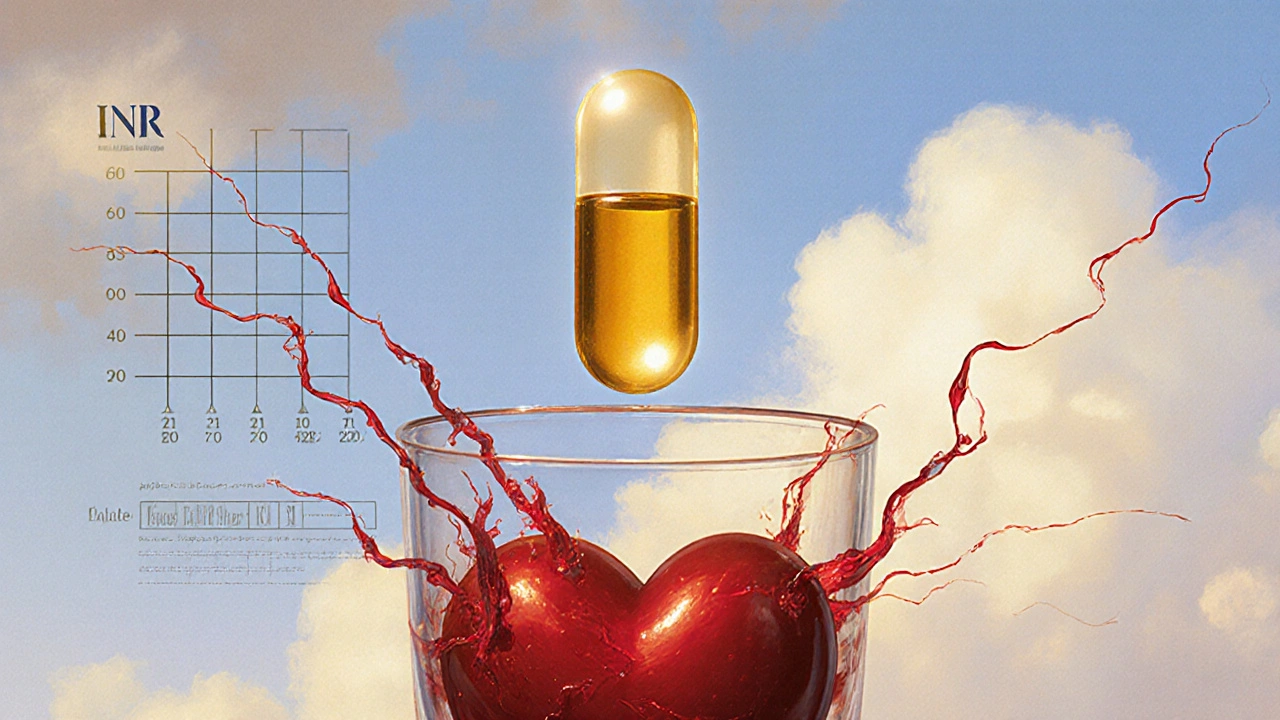Warfarin Interactions: What You Need to Know About Medication Risks
When you’re taking warfarin, a blood thinner used to prevent dangerous clots. Also known as Coumadin, it’s one of the most commonly prescribed anticoagulants—but it’s also one of the most sensitive to what else you take or eat. Even small changes in your routine can throw off your INR levels, which measure how long it takes your blood to clot. Too high, and you risk bleeding. Too low, and you could get a stroke or clot. This isn’t theoretical—thousands of people end up in the ER every year because of unnoticed warfarin interactions.
Many of these problems come from things people don’t think of as drugs. NSAIDs, like ibuprofen or naproxen, can increase bleeding risk when mixed with warfarin. So can antibiotics, especially those like ciprofloxacin or metronidazole. Even vitamin K, found in leafy greens, can reduce warfarin’s effect if your intake suddenly changes. It’s not about avoiding these things completely—it’s about keeping your intake steady. A salad every day? Fine. A kale smoothie every morning one week and none the next? That’s a problem.
Some supplements are silent troublemakers. Garlic, ginkgo, ginseng, and even St. John’s wort can interfere with how your body breaks down warfarin. And it’s not just what you take—it’s what you stop taking. If your doctor switches you from one antibiotic to another, or you quit a daily aspirin, your INR can swing fast. That’s why regular blood tests aren’t optional. They’re your safety net.
What you’ll find in the posts below isn’t just a list of drug names. It’s real-world guidance from people who’ve been there: how pharmacists catch these errors before they happen, why post-menopausal women need extra care with blood thinners, how to bring a caregiver to your appointments to make sure nothing slips through, and how to read your own lab results so you’re not just waiting for a call from your doctor. You’ll see how warfarin fits into bigger patterns—like medication safety, polypharmacy risks, and the hidden dangers of over-the-counter painkillers. This isn’t theory. It’s what keeps people out of the hospital.
Vitamin E and Warfarin: What You Need to Know About the Bleeding Risk
Vitamin E supplements can increase bleeding risk when taken with warfarin, especially at doses above 400 IU daily. Learn what the evidence says, which doses are dangerous, and how to stay safe while on anticoagulant therapy.

